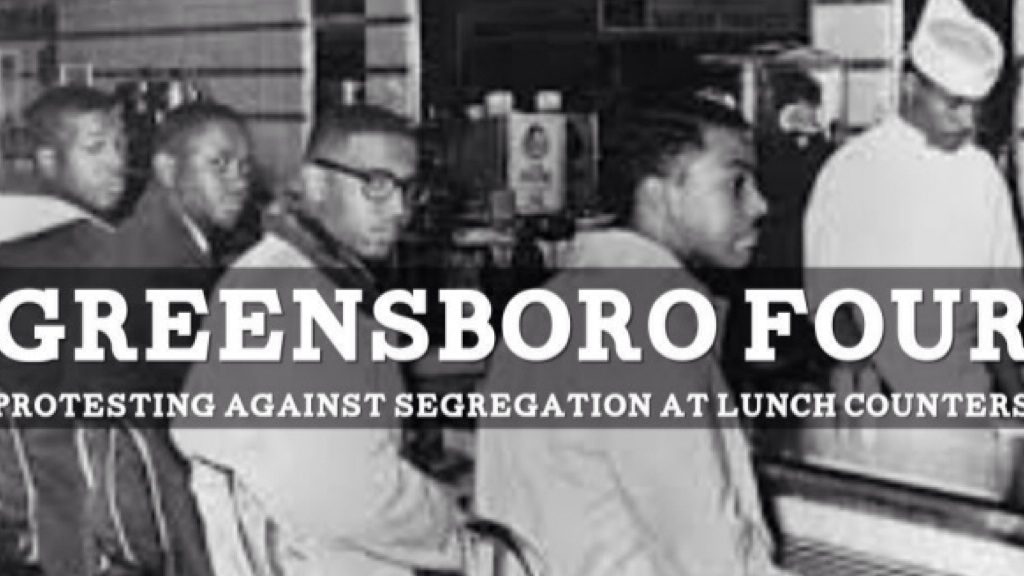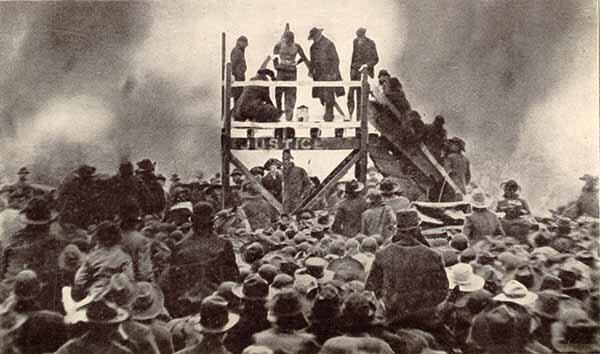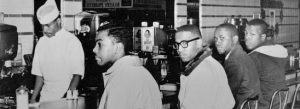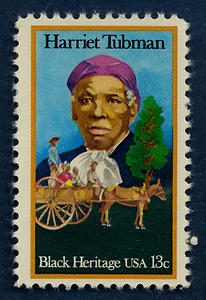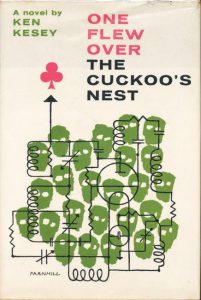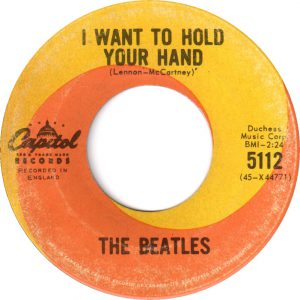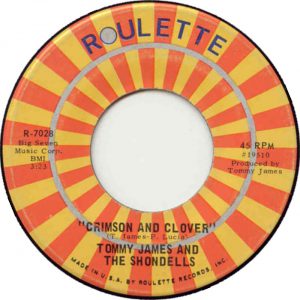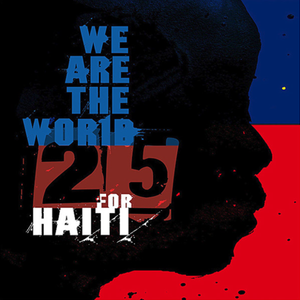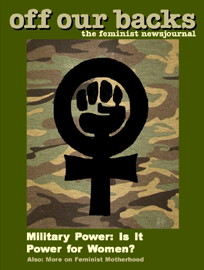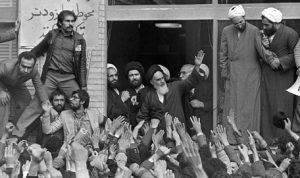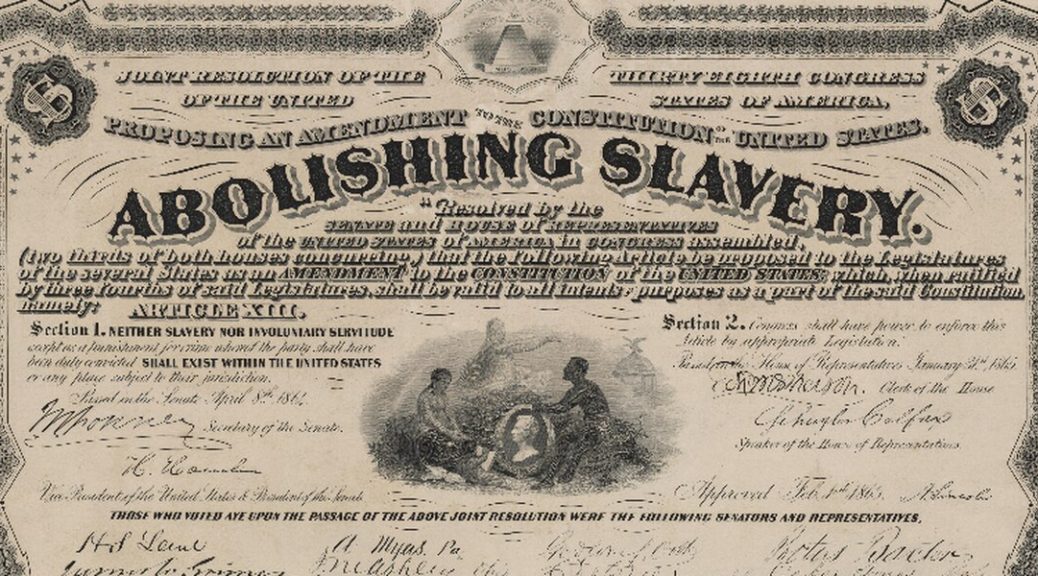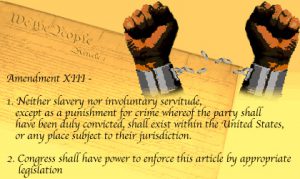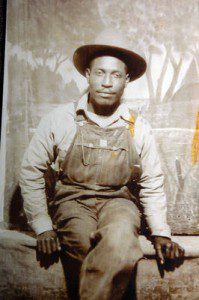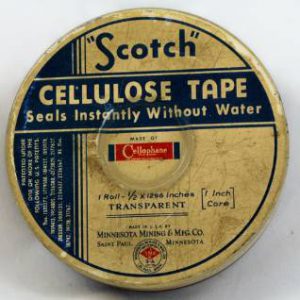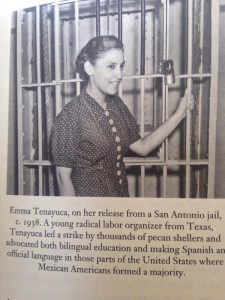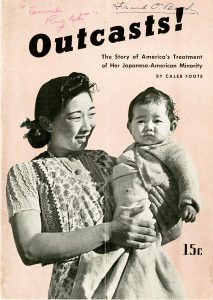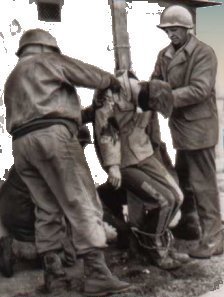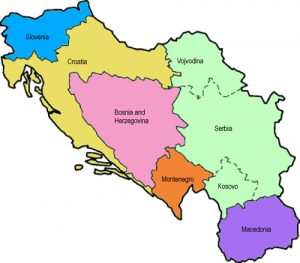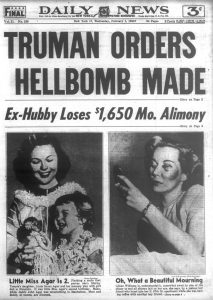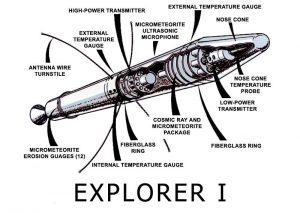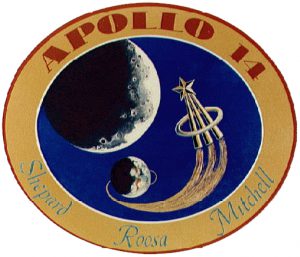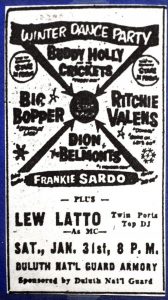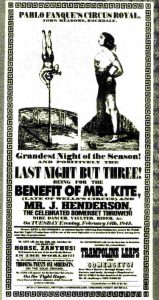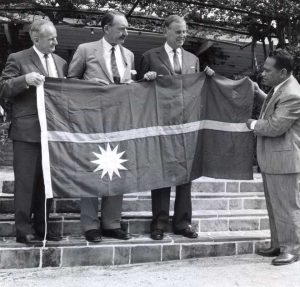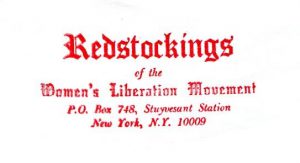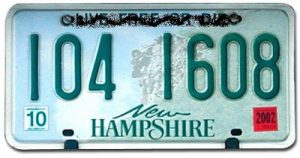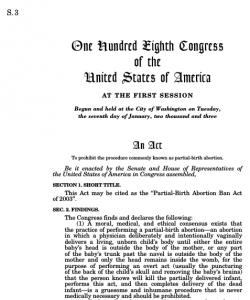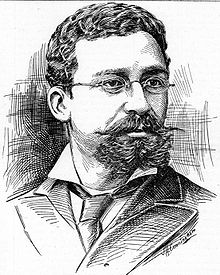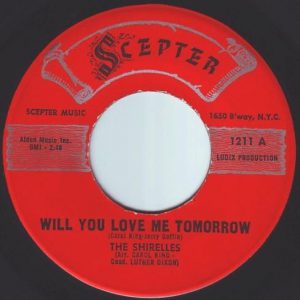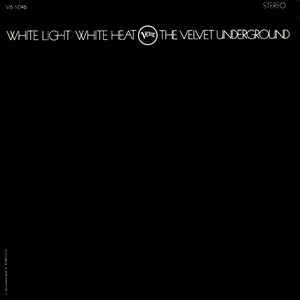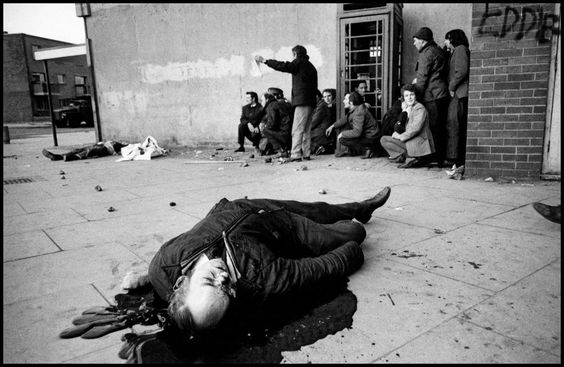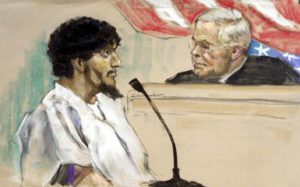February 1 Peace Love Art Activism
Fourth Amendment
February 1, 1886: in Boyd v US, the US Supreme Court held that “a search and seizure [was] equivalent [to] a compulsory production of a man’s private papers” and that the search was “an ‘unreasonable search and seizure’ within the meaning of the Fourth Amendment.”
This case began the development of right to privacy protections. The U.S. Supreme Court held, in overturning a statute, that the forced production of, in this case, business records violated the Fourth Amendment protection against unreasonable searches and seizures and the Fifth Amendment protection against forced self incrimination. (see December 24, 1914)
February 1 Peace Love Art Activism
Women’s Health
February 1, 1943: in Tileston v. Ullman, the Supreme Court upheld a Connecticut law banning the use of drugs or instruments that prevented conception. The attorney in the case was Morris Ernst who was a pioneer in the fight for reproductive rights and against censorship. Twenty-two years later, in Griswold v. Connecticut, on June 7, 1965, the Court declared the Connecticut law unconstitutional and established a constitutional right to privacy.
Fuller Albright
In 1945: Harvard endocrinologist Fuller Albright wrote a seminal report that will come to be known as “Albright’s Prophecy.” As part of an analysis of serious menstrual disorders, he wrote that preventing ovulation prevents pregnancy and explored the possibility of “Women’s Health by hormone therapy.” (see August 30, 1949)
February 1 Peace Love Art Activism
Pledge of Allegiance
Eisenhower baptized
February 1, 1953: President Eisenhower was baptized, confirmed, and became a communicant in the Presbyterian church in a single ceremony.
Boulder Valley School District
February 1, 2018: the Boulder Valley School District (CO) placed Karen Smith, on paid leave after a student accused her of forcibly lifting the student to his feet by his jacket when he refused to stand for the pledge. Smith then removed the student from the class.
Smith had been employed for 20 years as a physical education teacher. (see Pledge for expanded chronology)
February 1 Peace Love Art Activism
BLACK HISTORY
Henry Smith lynched
February 1, 1893: accused of raping and murdering a four-year-old girl, a posse hunted down Henry Smith was hunted down by a posse.
When returned to town, the local citizens proudly announced they would burn him alive. That boast was reported in news stories which traveled by telegraph and appeared in newspapers from coast to coast.
The killing of Smith was carefully orchestrated. On February 1, 1893, the townspeople constructed a large wooden platform near the center of town. And in view of thousands of spectators, Smith was tortured with hot irons for nearly an hour before being soaked with kerosene and set ablaze.
The extreme nature of Smith’s killing, and a celebratory parade that preceded it, received attention which included an extensive front-page account in the New York Times. And the noted anti-lynching journalist Ida B. Wells wrote about the Smith lynching in her landmark book, The Red Record.
“Never in the history of civilization has any Christian people stooped to such shocking brutality and indescribable barbarism as that which characterized the people of Paris, Texas, and adjacent communities on the first of February, 1893.”
Photographs of the torture and burning of Smith were taken and were later sold as prints and postcards. And according to some accounts, his agonized screams were recorded on a primitive graphophone and later played before audiences as images of his killing were projected on a screen. (next BH & Lynching, see June 3, 1893 or see Chronology for expanded list of this era’s lynchings)
Montgomery Bus Boycott
February 1, 1956: on behalf of five African American women [Aurelia S. Browder, Claudette Colvin, Mary Louise Smith, Susie McDonald, and Jeanette Reese] who had been mistreated on city buses, Fred D. Gray and Charles D. Langford filed a Federal District Court petition that becomes Browder v. Gayle. It challenged the legality of separate seating on Montgomery’s municipal buses. (BH, see Feb 2; B v G, see June 5, 1956; see MBB for expanded boycott chronology)
The Greensboro Four/1960
February 1, 1960: Joseph McNeil, Franklin McCain, Ezell Blair, Jr. and David Richmond (The Greensboro Four) entered the F.W. Woolworth store in Greensboro, N.C., around 4:30 p.m. and purchased merchandise at several counters. They sat down at the store’s “whites only” lunch counter and ordered coffee, and were denied service, ignored and then asked to leave. They remained seated at the counter until the store closed early at 5 p.m. The four friends immediately returned to campus and recruited others for the cause. Greensboro chronology site (BH, see Feb 2; sit-in victory, see Oct 17)
The Greensboro Four/1961
February 1, 1961: the students from Friendship Junior College and others who had picketed McCrory’s on Main Street in Rock Hill, North Carolina to protest the segregated lunch counters at the business on January 31, 1961 were convicted of trespassing and breach of the peace and sentenced to serve 30 days in jail or to pay a $100 fine. (BH, see Feb 9; Friendship 9, see January 28, 2015; see Greensboro for expanded chronology)
Voter registration arrests
February 1, 1965: Martin Luther King Jr, Ralph Abernathy, and more than 770 other Blacks were arrested in Selma while demonstrating against Alabama’s voter-registration requirements. About 500 of those arrested were students who stayed out of school and picketed a the Dallas County Courthouse. Neither King and Abernathy refused to be bonded out. (MLK, see Feb 4)
George Whitmore, Jr
February 1, 1965: Whitmore’s former attorney, Jerome Leftow, and one of this current attorneys, Arthur H. Miller, revealed that Whitmore had been given “truth serum” (sodium amytal) at Bellevue Hospital and, while under the influence of the drug, had consistently maintained his innocence. The N.A.A.C.P. and ACLU asked Governor Nelson Rockefeller and FBI Director J. Edgar Hoover to investigate the circumstances that led to Whitmore’s false confession in the Wylie-Hoffert case. (see Whitmore for expanded story)
Harriet Tubman
February 1, 1978: Harriet Tubman became the 1st black woman honored on a US postage stamp. (see Feb 15)
Medgar Evers 1963 Assassination
February 1, 1994: the prosecution of Byron De La Beckwith finished with two more witnesses testifying that De La Beckwith had bragged about killing Evers. Mark Reiley was the sixth person to testify that Mr. Beckwith had boasted of or made reference to having killed Evers in 1963. (see Feb 2)
Church Burning
February 1, 1996: in Louisiana four churches within a six-mile radius—Cypress Grove Baptist, St. Paul’s Free Baptist and Thomas Chapel Benevolent Society in East Baton Rouge as well as Sweet Home Baptist in Baker — were set on fire on the anniversary of the 1960 Greensborom, NC sit-in. (BH see July 19; CB, see November 5, 2008)
February 1 Peace Love Art Activism
February 1 Music et al
Ken Kesey
February 1, 1962: Ken Kesey’s One Flew Over the Cuckoo’s Nest published. (see September)
Louie, Louie pornographic
February 1, 1964: Billboard magazine reported that Indiana Governor Matthew E. Welsh had declared the song “Louie, Louie” by the Kingsmen pornographic. He requested that the Indiana Broadcasters Association ban the record. Governor Welsh claimed that hearing the song made his “ears tingle.” (see Louie Louie for expanded story) (next Teenage Culture, see Feb 8)
Beatles
February 1 – March 30, 1964: “I Want To Hold Your Hand” by the Beatles #1 on the Billboard Hot 100. It was the first of 20 #1 Hot 100 Hits and the first of 71 Hot 100 hits (see Feb 3)
Crimson and Clover
February 1 – 14, 1969: “Crimson and Clover” by Tommy James and the Shondells #1 on the Billboard Hot 100.
We Are The World 25 For Haiti
February 1, 2010: “We Are The World 25 For Haiti” recorded
February 1 Peace Love Art Activism
Vietnam
LBJ pledges more effort
February 1, 1964: President Johnson said that he saw no chance of negotiating a peace for Southeast Asia, as proposed by French President de Gaulle, and instead pledged a greater effort in Vietnam. (see Mar 17)
Nguyễn Ngọc Loan
February 1, 1968: Nguyễn Ngọc Loan, a South Vietnamese National Police Chief executed a Viet Cong officer named Nguyễn Văn Lém. The event was photographed by Eddie Adams and made headlines around the world. It won the 1969 Pulitzer Prize and swayed U.S. public opinion against the war. (see photo; see Eddie Adams for more) (see Feb 2)
February 1 Peace Love Art Activism
Feminism
February 1, 1970: the feminist news journal off our backs published its first issue. (see June 11)
February 1 Peace Love Art Activism
Iran hostage crisis
February 1, 1979: Ayatollah Ruhollah Khomeini returned to Tehran, Iran after nearly 15 years of exile. (see Feb 11)
February 1 Peace Love Art Activism
Doctor-assisted Suicide
February 1, 1996: the New England Journal of Medicine published studies of physicians’ attitudes towards doctor-assisted suicide in Oregon and Michigan. The studies demonstrated that a large number of the physicians surveyed support, in some conditions, doctor-assisted suicide. (see JK for expanded chronology)
February 1 Peace Love Art Activism
CLINTON IMPEACHMENT
February 1, 1999: House prosecutors questioned Monica Lewinsky in a closed-door deposition; Clinton’s lawyer reads a statement to her expressing the president’s “regret” over what Lewinsky has gone through, but asks no questions. (see Clinton for expanded story)
February 1 Peace Love Art Activism
LGBTQ
February 1, 2008: a New York State appeals court unanimously voted that valid same-sex marriages performed in other states must be recognized by employers in New York, granting same-sex couples the same rights as other couples. (see Feb 2)
February 1 Peace Love Art Activism
Native Americans
February 1, 2017: American University in Washington, DC, removed a statue of Native American activist Leonard Peltier–– incarcerated for the 1975 killings of two FBI agents––after the work prompted backlash from an organization representing federal officers as well as anonymous threats of violence. (see Mar 7)
February 1 Peace Love Art Activism
Crime and Punishment
February 1, 2018: U.S. District Judge Mark Walker ruled that Florida’s system for barring former felons from voting was unconstitutional and potentially tainted by racial, political or religious bias.
Walker criticized the state panel led by Florida’s governor that decides whether to restore voting rights to people who have completed their sentences, saying their process is arbitrary and exceedingly slow.
“In Florida, elected, partisan officials have extraordinary authority to grant or withhold the right to vote from hundreds of thousands of people without any constraints, guidelines, or standards,” Walker wrote. “The question now is whether such a system passes constitutional muster. It does not.
“A person convicted of a crime may have long ago exited the prison cell and completed probation,” the judge continued in the 43-page order. “Her voting rights, however, remain locked in a dark crypt. Only the state has the key — but the state has swallowed it.”
“The judge did not rule on how the issue should be remedied — he will hold hearings on that in mid-February — but he said the voter restoration system must be changed as soon as possible.
Florida voters will restore the right to vote in the November 6 elections. (see Feb 21)
February 1 Peace Love Art Activism
Nuclear/Chemical News
February 1, 2019: Secretary of State Mike Pompeo announced that the US was suspending one of the last major nuclear arms control treaties with Russia after conversations between the two powers recently failed to resolve a long-running accusation that Moscow was violating the Reagan-era treaty. Pompeo cast the Russian government as unwilling to admit that a missile it had deployed near European borders violatd the terms of the 1987 Intermediate-Range Nuclear Forces Treaty. (see Feb 2)

